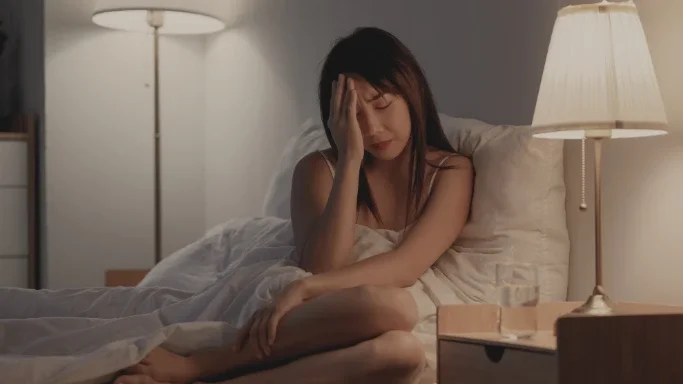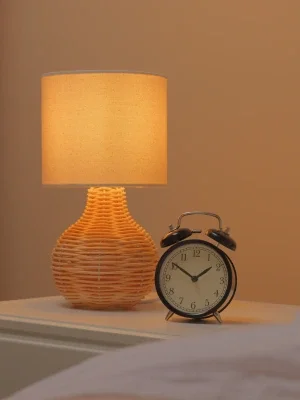Why Your Confidence Drops When the Weather Changes?
Summer me: Zendaya on a Vogue cover. Winter me: Eeyore from Winnie the Pooh wrapped in a blanket all day.
That shift is real. And you’re not the only one feeling it.
Many people in Canada, especially in colder provinces (Alberta, Ontario, Manitoba, etc,) notice their self-esteem taking a hit in the darker, colder months.
If you’ve ever caught yourself thinking, “Why do I feel so off when the seasons change?” this post is for you. Let’s explore why your self-esteem might fluctuate with the weather, what you can do about it, and how therapy can support you when it’s more than just a “bad day.”
Why Does Weather Affect Confidence and Self-Esteem?
Seasonal changes influence more than your wardrobe. As the weather shifts, so do your sleep cycles, energy levels, and even how you feel about yourself. So let’s talk about why fall and winter can have such a big impact on our self-esteem.
When daylight drops in the winter, your body produces more melatonin (which makes you sleepy) and less serotonin (which helps regulate mood). Sun exposure triggers your skin to Produce vitamin D (via UV rays), which is linked with mood regulation. Deficiencies are associated with higher rates of depression and low mood. More sunlight often means higher serotonin (the “feel-good” neurotransmitter) and more energy.
When you feel more energetic, positive, and alert, your self-esteem and confidence are more likely to be higher. When that dips, you might feel less sure of yourself. These chemical shifts can leave you feeling low, sluggish, and disconnected from your usual routines in the winter. When you’re tired or emotionally flat, it can be harder to feel good about how you look or what you’re accomplishing. Even small tasks can feel heavier, which can create a loop of self-criticism or self-doubt.
Additionally, your body’s internal clock (the circadian rhythm) relies heavily on light cues (day vs night) to regulate sleep, alertness, and hormones. Shorter days, less daylight in winter (or in overcast conditions) means your internal clock can get a bit out of whack. You might feel sleepy, less motivated, and slower. Poor sleep, irregular rhythm, or feeling “out of sync” often undermines how you feel about yourself (tired, less sharp, less “on”). This can have the effect of reducing confidence in the late fall and winter months.
All-in-all, its safe to say that our environments influence how we see ourselves. That includes the weather outside and the expectations that come with it.
Common Confidence Shifts Through the Cold Seasons
Here are a few patterns people often notice:
In winter, it’s common to feel withdrawn, tired, and less confident about your appearance or productivity. You wake up — it’s dark; you go home after work — it’s dark again. And on top of that, you’re supposed to wear all those layers that make you feel like you’re wrapped up like a burrito. Basically, an absolute meh.
Rainy, grey days can zap motivation and increase feelings of irritability or restlessness.
You’re feeling low-energy and sleepier than usual — especially in late fall, when you’re adjusting to a new routine and skipping your mental health morning walks. That’s definitely a lot on one plate.
These experiences don’t mean anything is “wrong” with you or you’re lazy. They are responses to real environmental changes, and many people deal with the same emotional waves.
Is It Seasonal Self-Esteem or Something More?
While lots of people experience seasonal self-esteem dips, some may be dealing with Seasonal Affective Disorder (SAD).
SAD is a type of depression tied to specific seasons, most often late fall and winter. If your low mood is persistent, affecting your sleep, appetite, or ability to function, it might be more than just a seasonal confidence dip. The key difference is intensity and impact. Feeling a little off in the colder months is common. Feeling hopeless or emotionally stuck might be a sign to reach out for support. Whether you’re facing mild seasonal shifts or something more intense, therapy can help.
How Can You Boost Your Confidence During the Winter Months?
Light & Light Therapy
During darker months, make time for outdoor walks, especially in the morning. If sunlight is limited, try using a light therapy lamp. If you wake up before sunrise, use a light therapy lamp for 20-30 minutes while eating breakfast or getting ready. This mimics sunlight and boosts serotonin as well as vitamin D production!
Keep your space bright with warm lights and open blinds. A well-lit environment can make a bigger difference than you might think.
Self-Care Routines. Create grounding habits that help you feel stable and secure, like morning skin-care routine. Journaling can help you track your moods and identify patterns. Affirmations and mindfulness practices can support self-esteem and emotional regulation. We have a great blog post about winter self-care routines — feel free to check it out for some simple strategies to make your winter a little cozier and brighter.
Fresh air and moving your body can also help. This can take the form of making it a habit to go to the gym, or even walking your pet in the morning (but if its –30 degrees Celsius and you are not feeling like freezing your face off, you can use a walking pad as an alternative)
Mindset Shifts. One powerful way to cope with seasonal self-esteem is to simply name what’s happening. Remind yourself, “This might be seasonal,” instead of immediately going into self-blame. Your mood and confidence are not always a reflection of your worth. Sometimes they’re just a reflection of the weather.
Reframing your narrative can also be effective. It’s easy to say “I hate winter” and subconsciously feel defeated by it. Try reframing by saying: Winter is my recharge season. Quieter, slower, but still productive in my own way.
Dress to lift your mood. Even if you’re staying in, wear colours and textures that make you feel confident — imagine you’re expecting guests today (even if it’s just another work-from-home day). Sometimes these little things can influence how you feel without you even noticing.
Try something new. Take a fun class, try a new hobby, or explore a new place — novelty boosts dopamine and your sense of self-efficacy. Maybe it’s your sign to try cross-country skiing or finally do bachata or heels-dance.
Stay socially connected. Plan virtual or in-person coffee chats. Winter isolation can sneak up, and connection helps keep your self-esteem grounded. At TCC we’re hosting community events in Calgary to bring people together and making a friendships! So maybe this is your sign if you’re in YYC.
Professional Support. If your seasonal confidence dips are affecting your day-to-day life or if you’re tired of riding the emotional rollercoaster every few months, therapy can offer tools, clarity, and relief. You don’t need a diagnosis to benefit from support. Sometimes just talking it out with someone who gets it can help you feel like yourself again. At TCC we offer a free 15-min consult with a therapist in Canada, so feel free to try it out and see if one of them is your perfect fit.
TLDR:
Your self-esteem may shift with the seasons and weather. That’s normal and common.
These changes are linked to light exposure, mood, energy, and body image factors.
There’s a difference between seasonal confidence dips and Seasonal Affective Disorder.
Tools like light therapy, consistent self-care, mindset awareness, and therapy can help.
If your confidence drops are persistent or disruptive, you deserve support.
You’re not imagining it. And you’re not alone.
If you’re feeling unlike yourself during the colder months or overwhelmed during the hotter ones, it doesn’t mean you’re weak. It means you’re responding to your environment. And that’s human. We’re here to support you in understanding those shifts and finding steadier ground -whatever the season.
📚References:
Kerr, J. S., Hintze, J. M., & Granger, D. A. (2002). Seasonal self-esteem and mood variation: Preliminary findings from a Canadian sample. Psychiatry Research, 112(2), 121–127. Lyubomirsky, S. (2023). 5 Tips for Successful Seasonal Well-Being. Psychology Today.


